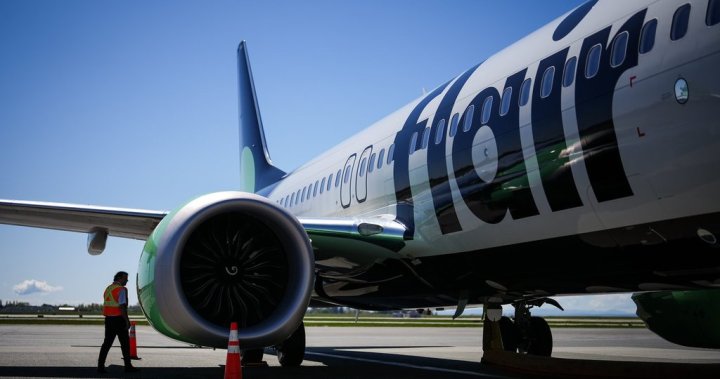In a significant escalation of tensions within Canada’s budget airline sector, multiple aircraft leasing companies have accused Flair Airlines of repeatedly failing to make timely lease payments for its fleet. Documents obtained by CO24 reveal a troubling pattern of financial irregularities that could potentially impact the ultra-low-cost carrier’s operational stability heading into the busy summer travel season.
According to confidential industry sources, at least three major aircraft lessors have reported that Flair Airlines has fallen behind on payments for several Boeing 737 aircraft, with some arrears allegedly stretching back several months. This development raises serious questions about the Edmonton-based airline’s financial health amid an already competitive Canadian aviation market.
“The consistent pattern of delayed payments suggests this isn’t merely an administrative oversight but potentially indicative of deeper financial challenges,” said aviation analyst Morgan Patterson, who has been monitoring the situation closely. “In the leasing business, timely payments are fundamental to maintaining relationships with these essential partners.”
Flair Airlines has positioned itself as a disruptive force in Canadian air travel, offering dramatically lower base fares than established carriers like Air Canada and WestJet. This business model, however, operates on razor-thin margins and requires meticulous cash flow management to sustain operations.
The airline’s CEO, Stephen Jones, has vigorously denied the allegations, describing them as “mischaracterizations” of normal business discussions. In a statement provided to CO24, Jones insisted that “Flair Airlines maintains productive relationships with all its lessors and continues to operate its full schedule without interruption.”
This isn’t the first time Flair has faced scrutiny over its leasing arrangements. In 2022, the airline weathered a significant crisis when four of its aircraft were seized by a lessor over payment disputes. That incident triggered a regulatory review and raised questions about the carrier’s business strategy and financial planning.
Industry experts point out that aircraft leasing constitutes one of the largest fixed costs for budget airlines. “When you’re operating on the ultra-low-cost model, your ability to meet lease obligations is absolutely critical,” explained aviation economist Priya Sharma. “These allegations, if proven true, could signal potential turbulence ahead for Flair’s operations.”
The timing is particularly concerning as the carrier prepares for the peak summer travel period. Any disruption to Flair’s fleet availability could leave thousands of Canadian travelers stranded or facing last-minute rebookings at significantly higher prices with other airlines.
Consumer advocacy groups are already expressing concern about the potential impact on passengers. “Canadians who’ve booked with Flair deserve transparency about the airline’s financial stability,” said consumer rights advocate Julian Benson. “The Canadian Transportation Agency should be closely monitoring this situation to protect traveler interests.”
As this story develops, the key question remains: Can Flair Airlines stabilize its financial relationships with lessors while maintaining its ultra-low-cost business model in Canada’s increasingly competitive aviation landscape? The answer will have significant implications not just for the airline’s future, but for the affordability and accessibility of air travel across the country.










